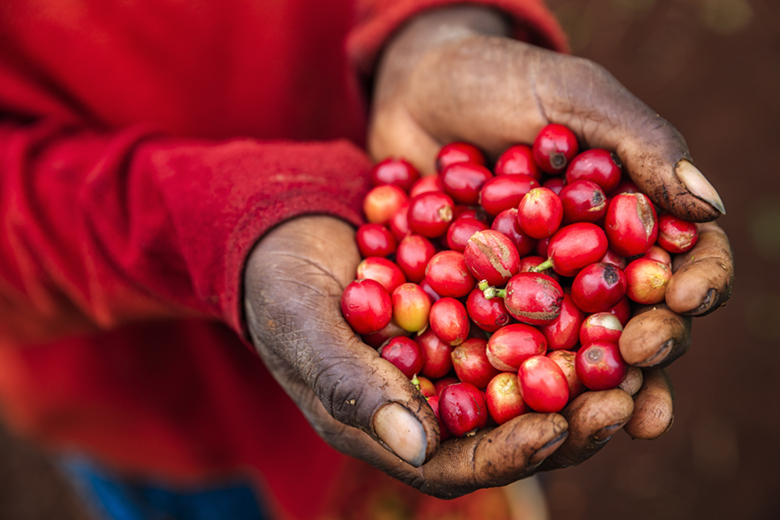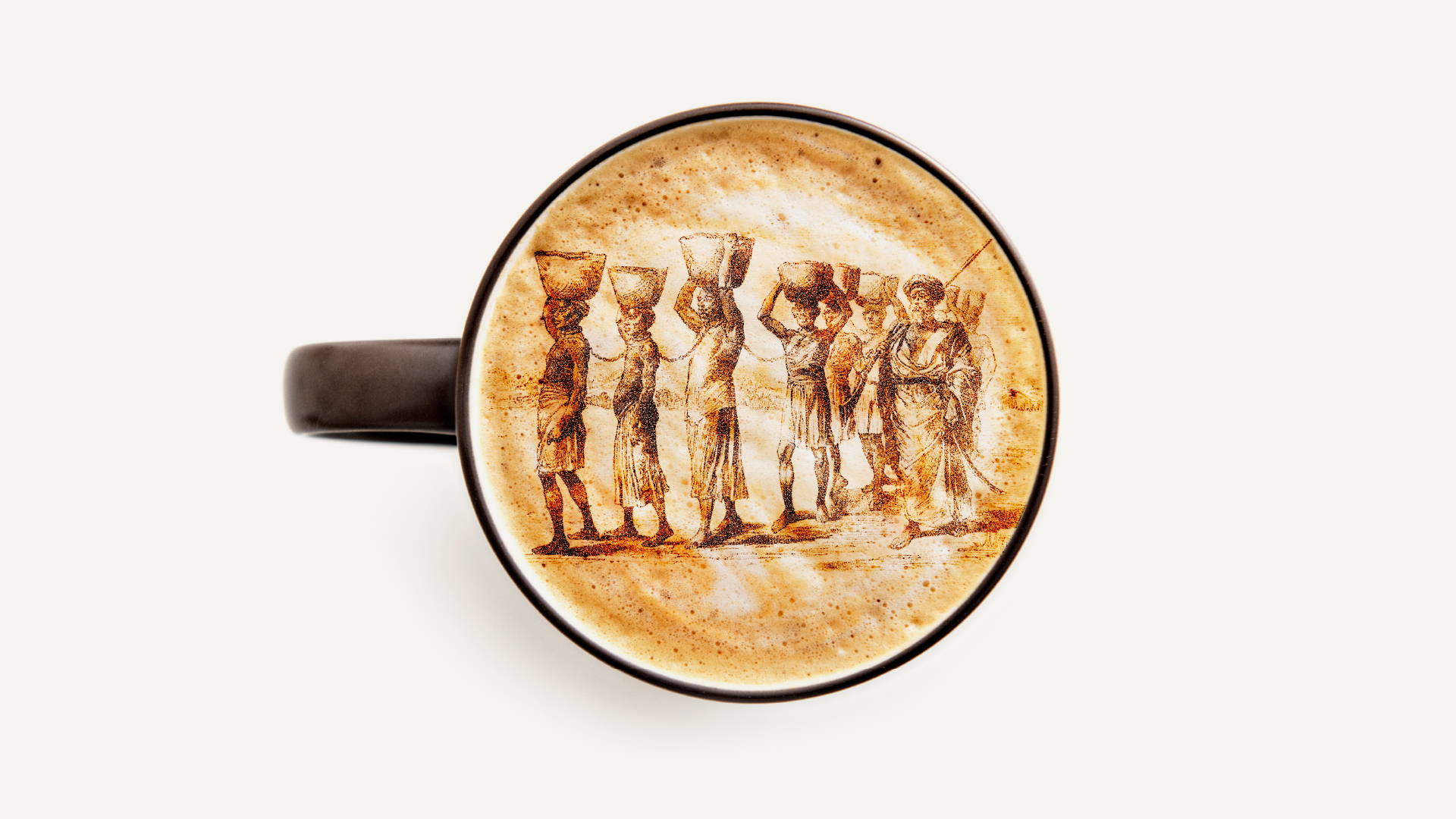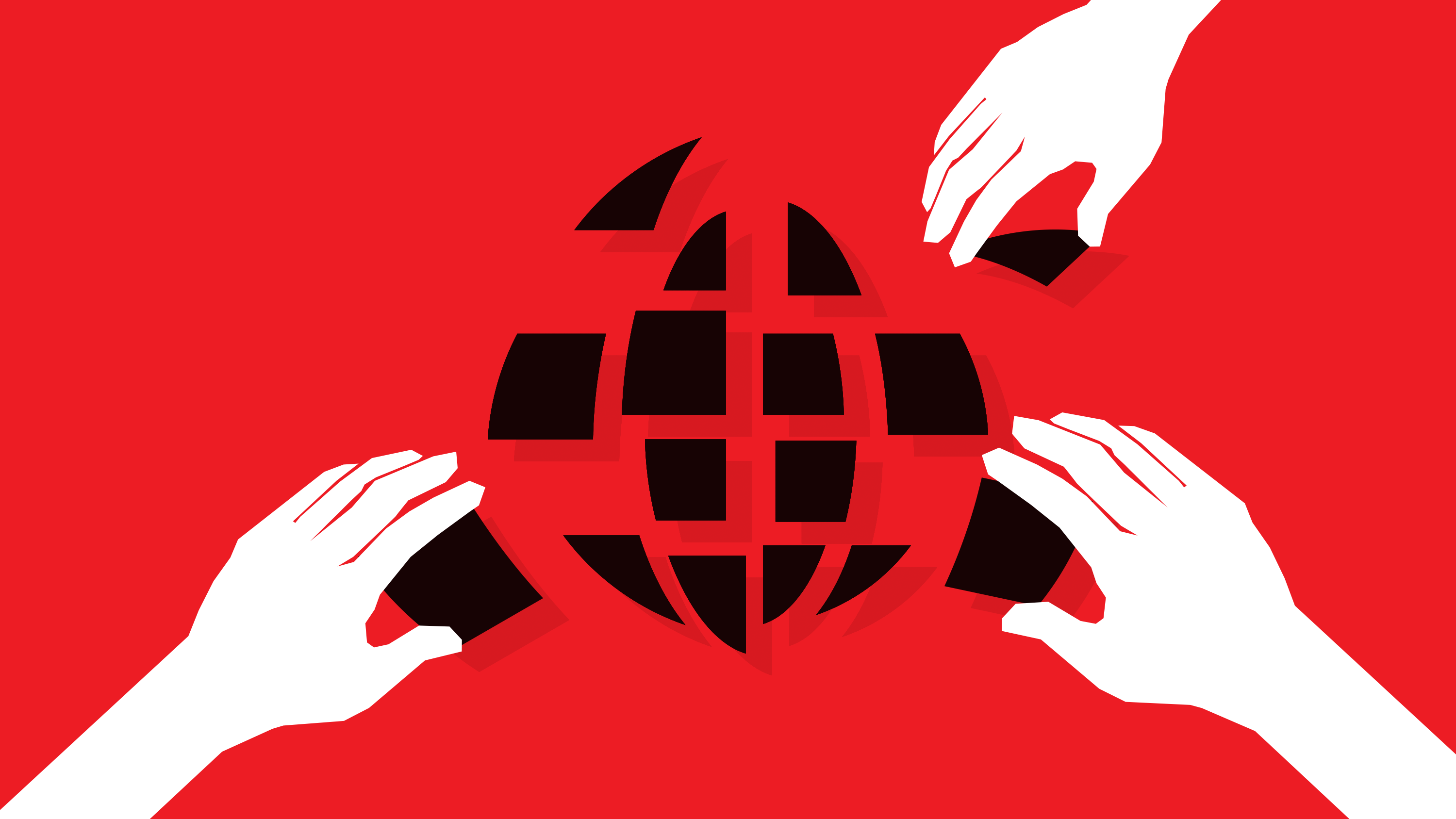The Cost of Your Coffee
Do You Know Where Your Cappuccino Comes From?
Many in the developed world enjoy the luxury and privilege of taking much for granted. Yet our comforts often come at someone else’s expense.
At least two billion cups of coffee are drunk every day, making it one of the world’s most popular drinks. But its popularity is not a modern phenomenon. In the 1730s, baroque composer Johann Sebastian Bach wrote a miniature comic opera to celebrate it: “If three times a day I couldn’t drink my little cup of coffee, I would become so upset that I would turn into a shriveled-up piece of roast goat. . . . Ah! How sweet coffee tastes, lovelier than a thousand kisses. . . .”
In this “Coffee Cantata,” as it’s popularly known, Bach’s character never wonders about the origins of her favored drink. Coffee plants do not thrive in the temperate climate of Leipzig, where the composer lived at the time, so it had to be imported.
It’s the same for many today. Few of us pause to consider—while in a café waiting to be served, perhaps—where our morning brew comes from. It might be surprising to note just how many ingredients could have come from a single continent.
Let’s consider a hypothetical cup.
The beans that comprise your coffee may have grown in Uganda, while the chocolate atop a cappuccino could well have been harvested from cacao forests in Côte d’Ivoire. The plastic lid and water-repellent coating on the disposable cup might be derived from petroleum sourced in any one of Africa’s many oil-producing nations—maybe Algeria or Cameroon. The brownie you grab as a spontaneous treat may contain the same Ivorian cacao, as well as palm oil (Nigeria) and an alternative sweetener such as sorghum syrup (Ethiopia). The phosphates that fertilized the flour grains may have come from Morocco. The cashews you guiltily grab to offset the brownie could be from Côte d’Ivoire or Tanzania. Café staff misspell your name on the cup (as usual) with ink manufactured, perhaps, from Angolan or Libyan petroleum.
And the mobile phone you use to pay for this casual treat? It’s powered by coltan, which may well have been mined in the Democratic Republic of Congo.
Of course, the components of your particular morning fix may not have originated in Africa, but they came from somewhere, and probably not a local source. This is the nature of our globalized capitalist world. Products of all sorts will travel thousands of miles to get to your shopping basket if that’s more profitable than manufacturing or obtaining them closer to home. And this isn’t a recent phenomenon, either. International trade has been a key part of human activity for centuries. Certainly Bach was writing at a time when globally sourced goods were already common.
International trade is a rarely noticed part of our everyday lives, so we may not realize that the system often benefits a few at the expense of the many.
Rich, Yet Poor
Africa is a paradox. On one hand, it is enormous—a continent larger than Europe, China and the United States combined. It’s replete with valuable natural materials: oil, gas, gold, silver, uranium, diamonds, platinum, coltan, phosphates and more. It is rich in human resources too, with a population roughly the same as that of China or India. Yet African nations are often among the world’s most impoverished. Global Finance’s 2021 rankings indicate that of the world’s 30 poorest nations, 25 are in Africa. The continent’s highest-ranking country, Equatorial Guinea, is 76th on the list of 194 countries.
“Africa accounts for 13 percent of the world’s population and just 2 percent of its cumulative gross domestic product, but it is the repository of 15 percent of the planet’s crude oil reserves, 40 percent of its gold, and 80 percent of its platinum.”
In the words of journalist Tom Burgis, the continent is “at once the world’s poorest and, arguably, its richest.”
The reasons for this are manifold and exceedingly complex. Many point to current failings in infrastructure, to environmental challenges and to political corruption. All these have contributed, no doubt, but there’s a growing sense that the causes go back a lot further. They began centuries ago when international trade was introduced to the continent and irrevocably transformed it, with disastrous consequences for a multitude of peoples and cultures. Yet the practice is underpinned by principles that we continue to celebrate today.
Global trade in Africa began on a grand scale in the late 1400s. Portuguese traders sailed south and found a powerful, stable and rich society on central Africa’s west coast: the Kingdom of Kongo. Like other African societies of the time, Kongo boasted a strong government and justice system, as well as an elaborate civil service and tax scheme. It already engaged in trade in a localized sense, including in enslaved human beings, but the arrival of Europeans enhanced the scale enormously, quickly changing the rules of the game.
Merchants from England, Spain, France and the Netherlands soon followed the Portuguese to trade with peoples across the continent. They sought gold, copper, woven cloth and other valuables. But discoveries in the Americas—notably millions of acres of allegedly virgin land ripe for exploitation—produced a need for workers. Europeans filled that need largely by purchasing or enslaving humans from Kongolese and other African traders. In exchange, the Europeans offered cloth, tools, jewelry and money in the local currency (which often took the form of shells). European demand for enslaved Africans grew as they saw how profitable they were.
Spotlighting the barbarity of the early slave trade, historian Adam Hochschild quotes a 1526 letter from the Kongolese ruler Afonso I to the king of Portugal: “Each day the traders are kidnapping our people—children of this country, sons of our nobles and vassals, even people of our own family. . . . This corruption and depravity are so widespread that our land is entirely depopulated.”
The impact on the Kongo was twofold and proved prophetic for societies across Africa. First, the people resented the violence of enslavement and responded with a series of revolts that destabilized the Kongolese monarchy (and made it more vulnerable to external influence). Second, European demand was so great that they flooded the market with the local nzimbu, or shell currency, which led to rampant inflation and the collapse of the kingdom by the early 1700s, little more than 200 years after the first Portuguese had arrived.

The Power Dynamic
The evils of the trans-Atlantic slave trade are well attested and go far beyond its fundamental immorality. African societies also suffered from the scale of trade, and (critically) from its unequal nature. This inequality clearly manifested itself in other forms of commerce as well. One would think that increased demand for their goods would be a good thing, but it proved disastrous for African nations, and it’s a major reason why Africa’s economic development has lagged so far behind much of the rest of the world.
Put simply, over several centuries Europeans persistently “won” in trade with African societies. With their more advanced ships, for instance, they were able to glean superior knowledge of consumer demand in world markets throughout Europe, the Americas and Asia. By exploiting such advantages, they could dictate the terms of the trading relationship.
Their access to markets also meant that they could drive harder bargains. European traders had the pick of what the African locals offered, and they could restrict what they offered in exchange. As historian Walter Rodney describes in How Europe Underdeveloped Africa, they chose the goods to export: “Dutch linen, Spanish iron, English pewter, Portuguese wines, French brandy, Venetian glass beads, German muskets.” They also offered unwanted items that wouldn’t sell in European markets.
“Old sheets, cast-off uniforms, technologically outdated firearms, and lots of odds and ends found guaranteed markets in Africa.”
Often too, however, they simply paid in the local shell currency. It was largely worthless to Europeans but could be easily harvested from other parts of the world; the Portuguese found boatfuls in Brazil, for instance. There was, in theory, no limit to the amount of currency that could circulate, meaning it was subject to enormous inflation when demand for African goods soared.
The local currency was damaging to Africa in another sense. African societies, when purchasing European goods, typically traded natural resources, including gold. While their shell currency rapidly lost value, the worth of precious metals rose and, indeed, could generate further value in many markets across the world. Long-term, this meant that Europeans accumulated goods with lasting value, while what African societies received in return rapidly devalued.
European traders also offered goods that overlapped with what local societies already produced, with African products often being superior, or at least equivalent, to imported goods. The Europeans’ advantage was in scale. As Rodney explains, “the [African] cotton looms were small, the iron smelters were small, the pottery was turned slowly by hand and not on a wheel.” European technological advances meant they could produce more, and produce it more cheaply. African natives saw the advantages of inexpensive cloth—why spend hours at a loom when you can buy it cheaply?—and local industry suffered as a result. We see a similar dynamic at work today. You or I can easily buy cheap electronics or clothing that were manufactured where production and labor are inexpensive. Our own local industries always lose out.
Most dramatically, the trade of human beings worked catastrophically against Africans and in favor of Europeans. Speaking purely economically, Europeans gained something of value—a human being—who could work for little cost and produce further value by giving birth to future generations of slaves for similarly little cost. African societies lost many of their fittest and most able members, which hurt them immediately but also deprived them of those future generations. African populations stagnated as a result. Slavery also damaged local relationships, fragmented societies, undermined governments, and made it easier for slave traders to acquire merchandise at bargain rates. The loss of human capital greatly hampered African development.
As Polish journalist Ryszard Kapuściński put it, “Africa—persecuted and defenseless—was depopulated, destroyed, and ruined. Whole stretches of the continent were deserted; barren bush supplanted what had been sunny flowering lands.” The impact persists today. Academic Nathan Nunn, in a groundbreaking 2008 study, demonstrated that “the African countries that are the poorest today are the ones from which the most slaves were taken.”
No Shortage of Self-Interest
At their core, the motives of European traders were simple. They wanted profit and national advancement, and enslaved Africans were a means to that end. Other factors, notably a growing sense of racial superiority, were in play and contributed to the economic imbalance. The nature of European self-interest mutated over time, however; the slave trade gradually dissipated, while desire for Africa’s other resources (gold, diamonds, oil) grew and took on more stringent and heavy-handed imperial forms. As more countries—notably Belgium, the United States and China—joined in, the disparity in wealth between Africa and the rest of the world grew. Today, five centuries after the exploitation began, international self-interest continues while the plundered continent struggles to recover.
It should be noted, however, that the tendency toward self-interest was in evidence on both sides. The Kongolese ruler Afonso I noted how keenly his own people engaged in the appalling trade: “Many of our subjects eagerly lust after Portuguese merchandise that your subjects have brought into our domains. To satisfy this inordinate appetite, they seize many of our black free subjects.”
“A monstrous greed pushes our subjects, even Christians, to seize members of their own families, and of ours, to do business by selling them as captives.”
Writing of a much later European encounter, Nigerian novelist Chinua Achebe noted that “the white man had . . . built a trading store and for the first time palm-oil and kernel became things of great price, and much money flowed into [the village].” The immediate appeal of profit was great for everyone.
There is no doubt, though, who the economic winners were, and indeed continue to be. Europe and North America have derived enormous wealth from Africa. Political philosopher and psychiatrist Frantz Fanon said as much in 1961: “European opulence is literally scandalous,” he wrote, “for it has been founded on slavery, it has been nourished with the blood of slaves and it comes directly from the soil and from the subsoil of that underdeveloped world.”
The United States, too, profited greatly. In 1926, for the tiny sum of six cents an acre, American tire maker Harvey Firestone secured a 99-year lease on a sizable tract of land in Liberia—a small West African nation established in the 1800s as a colony for the often-forced “repatriation” of free and freed Black Americans. He turned the land into the world’s largest rubber plantation. While it provided Liberia with jobs and revenue, it predominantly benefited Firestone; his home state of Ohio, 8,000 kilometers (5,000 miles) away; and the American automotive industry. Today, Global Finance ranks Liberia as the ninth-poorest nation in the world.
Speaking of Belgium’s colonization of the Congo, journalist Howard W. French claims that the enterprise was driven by “sheer greed and a shocking lack of what we might identify today as humanity.”
And it continues. French describes “a recurring drama in Africa, where the outside world’s lust for some raw material, be it rubber, timber, cocoa, cotton, uranium or oil, knocks a society off balance and sends it careering into disintegration.” As noted earlier, most mobile phones today make use of coltan, much of which is mined in the Democratic Republic of Congo (DRC). One would think that such a valuable resource would bring wealth; but the trade is structured in such a way that the Congolese people do not prosper. According to Global Finance’s 2021 list, DRC is the sixth-poorest nation in the world.
As mentioned, other factors also come into play, not least political corruption; but the fact remains that trade consistently works strongly in favor of one side over the other. Those with more power inevitably get to call the shots.
You might say, well, that’s how the cookie crumbles. There are winners, and there are losers. If African societies made bad trades, then they must bear the cost of those decisions. And yet we must ask ourselves, how sustainable is this? Should we not wish for something better? Surely the world would be better served by a flourishing economic situation in Africa. Surely it isn’t desirable that African nations collapse, as has happened numerous times, in favor of international profit. Surely the best use of the world’s second-largest continent isn’t merely as a resource mine for the rest of the world.
Yet profit-driven capitalism would seem to say that it is.
“Capital accumulation became ever more heavily concentrated in other world regions, and West and West-Central Africa were by the early nineteenth century very much disadvantaged in their access to the capital needed to finance investment and economic growth.”
As historian Toby Green notes, Africa’s experience “stands in opposition to the weight of ascendant economic theories. Curiously, despite all the evidence showing that increasing global trade does not spread wealth equally, conventional economists in the twenty-first century often hold that greater trade leads to increases in prosperity through the growth of ‘the market’, and that eventually such wealth trickles down.” This has not happened and is not happening in Africa.
Another historian, Martin Meredith, further observes that Western governments are disinclined to help, even with procedures that appear to curb capitalism’s excesses: “Determined to protect their own producers, industrialised countries operate a system of subsidies and tariff barriers that have a crippling effect on African producers.” Tariff barriers operate against pure free-market principles, but it just goes to show that capitalism does not have the tools to fix its own problems. And Africa is not alone in its suffering; across the world capitalism seems to guarantee only ever-increasing inequality.

Coffee cherries, the fruit of the coffee plant, are harvested only when fully ripe to ensure maximum sweetness. Each typically yields two green seeds, or coffee beans, which are then roasted. African coffee farmers may earn as little as a penny from the sale of a $4 cappuccino.
These issues strike at core principles of Western society. Liberty, the pursuit of individual happiness, free commerce; these are all imbedded in the system of international trade. If we value these things above all, then inequality and inequity are consequences we must live with. But it’s worth imagining what an alternative route might have been. European traders might have shared more of their knowledge, sacrificed some of their profit, renounced slavery, and offered fair terms to their counterparts. They might have considered the needs of the other side. They would have become less wealthy as a result, but mutual care might have encouraged stronger and healthier societies across Africa over the long term, and a more equable international situation.
Hindsight is a valuable tool for those who have it, you might say. But it’s not as if this knowledge was unavailable to them. For centuries European and American societies generally claimed to be based on biblical values, and yet in trade they largely ignored them. The Bible recommends fair dealing, equality and honesty in trade, and care for those who are less fortunate. It criticizes unrestricted expansion of trade. It warns those who oppress the poor in order to increase their own wealth. It also specifies provisions to protect anyone who has suffered financial loss. For all of Westerners’ declared wishes to Christianize Africa, none of these principles were apparent in their dealings with those societies.
How Do You Take Your Coffee?
The coffee that Johann Sebastian Bach praised in song—the coffee many of us likewise enjoy and probably take for granted today—is just a small example of how our self-interested world is often blind to the needs of others. Africa in many ways bore the brunt of such self-interest for centuries, and it continues to do so today. French notes that “we awaken to [Africa] mostly in fits of coarse self-interest and outright greed.”
“Once upon a time, these brief awakenings involved a need for rubber or cotton, gold or diamonds, not to mention the millions of slaves . . . whose contributions to the wealth of Europe and its coveted New World are scarcely acknowledged.”
“Today,” he writes, “the pickings are as ‘exotic’ as ever, but have been updated to meet the needs of our modern era. Africa interests us for its offshore oil reserves, . . . or for rare minerals like coltan, which powers our cellular phones and PlayStations.” The situation seems unsustainable. Repeated economic collapses, whether localized or global, are a warning that the imbalance of trade cannot continue forever, even if it creates great wealth for a few (as the Bible also addresses).
We ought to be aware of this whenever we buy or sell anything—even an ordinary cappuccino—and to wonder whether there might be a better way. It reminds us of the words of British author Rebecca West, who wrote in Black Lamb and Grey Falcon that “surely [capitalism] is nothing like as good as what we want for ourselves, surely it can only be regarded with disappointment, not admiration.”
What can we wish for instead?
Change would require a dramatic transformation in our thinking. As Green argues, rebalancing may involve “more than ‘pragmatic’ decisions grounded in the political economy. It may involve something more fundamental: namely, questioning the moral value attributed to the credit system that underpins modern economics.”
The moral value of international trade, and capitalism in general, has indeed been found wanting. It would require change on a national level, and also on a personal one. If each person involved in trade—and that includes nearly everyone—acted with a spirit of generosity and care for others in their buying and selling, then the system would function very differently. We would see the other as an equal, with needs and desires like our own, rather than as a resource from which to squeeze the most profit. We would consider the strain on the environment, and its health. We would prioritize the needs and growth of others as much as we do our own.
It’s a tall order, and yet it is the only sustainable option. Satisfying and enduring change would surely be found in a system based in these principles of generosity, care for others, and long-term thinking.



